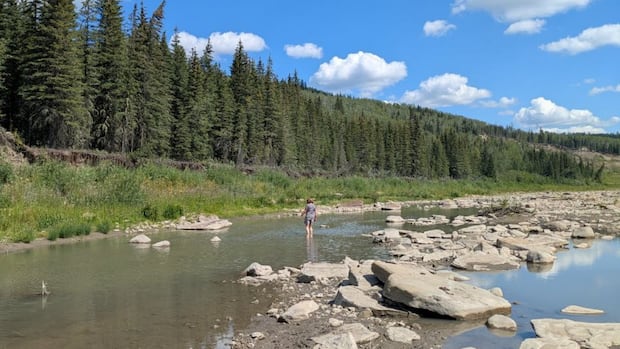Dawson Creek is escalating water restrictions as the northern B.C. city begins drawing down its stored reserves and tries to stretch the dwindling supplies into the fall.
City councillors approved Stage 3 conservation measures on Monday, which take effect Sept. 11 and remain in force until further notice.
“We are into our reservoirs as we speak,” said city CAO Kevin Henderson. “Right now, we’ve got about 150 days worth of stored water. We’re still pumping out of the river, but at a reduced rate, so that stretches days out, but … it’s becoming a bit more critical.
“As we creep into fall and early winter, if we don’t get any significant moisture before freeze-up we are going to be relying solely on reservoirs.”
Under the restrictions, residents will be limited to watering lawns only one day per week, and sprinklers and soakers are banned for watering gardens, shrubs and trees, as well as for play.
Refilling private pools, hot tubs, ponds or foundations is also prohibited, while there are limits on washing cars, boats, driveways and other outdoor surfaces at home, unless hoses have an automatic shutoff. Industrial withdrawals for fracking remain banned.
Exemptions apply for commercial nurseries, produce farms, tree farms, golf courses and permit holders.
10mm of rain all summer
The move follows another hot, dry summer compounding four straight years of drought in the Kiskatinaw River watershed, Dawson Creek’s only water source for around 15,000 people in the city, as well as the neighbouring Village of Pouce Coupe and rural residents in the Peace River Regional District.
The city has seen little to no rain this summer, recording just 9 millimetres in August, none in July, and only 1.8 millimetres in June. Temperatures in the region have hovered in the high 20s and early 30s for the past two weeks.
According to the provincial Ministry of Water, Land, and Resource Stewardship, streamflows in parts of the Kiskatinaw River upstream of the city’s water intake reached record-low levels for Sept. 5. The city estimates it could take as long as eight years of above-average precipitation to restore the watershed to normal.
“Thank God we have reservoirs, but it looks like we’ll be using them,” Henderson said. “The concern is that we get into a freeze-up and we haven’t had the moisture, then really the clock is ticking. Honestly, it would be touch-and-go to get through all of winter and into spring freshet without some help.”
Pipeline discussions continue
The worsening drought conditions has renewed the city’s push to find a new water source, most likely the Peace River, a project with an estimated cost of $100 million.
Mayor Darcy Dober says the city is continuing those discussions with the province, which will be an intense focus during its meetings with provincial ministers at the upcoming Union of B.C. Municipalities meetings this month.
Henderson says the city will likely have to move to Stage 4 restrictions, which would shut down commercial car washes, in order to get assistance from the province. Dober added the city will likely need to declare a state of emergency to get provincial support through the winter.
“At some point, we are going to need to get water from somewhere to our reservoirs,” he said.
The city implemented Stage 2 restrictions in July. Dober said that has had some impact on water use going down over the summer, showing the community is taking ownership over conserving water.

